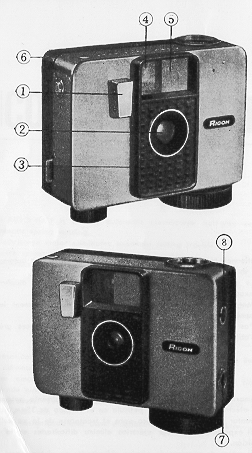
This camera manual library is for reference If you find this manual
useful,
and historical
purposes, all rights reserved.
This page is © 2024 by M. Butkus, NJ.
This page may not be sold or distributed without
the expressed
permission of the producer
On-line camera manual library
how about a donation of $3 to:
M. Butkus, 29 Lake Ave.,
High Bridge, NJ 08829-1701
and send your
e-mail address
so I can thank you.
Most other places would charge
you $7.50 for a electronic copy
or $18.00 for a hard to read Xerox copy.
This will help me to continue to host this site,
buy new manuals,
and pay their shipping costs.
It'll make you feel better, won't
it ?
If you use Pay Pal, use the link below.
Use the above address for a check, M.O. or cash.
Click
here to go to main
Camera Manual site
CLICK HERE FOR PDF VERSION
MADE
FROM HTML PAGE
Click here to go to
Ricoh Half PDF version
from original INSTRUCTION MANUAL
